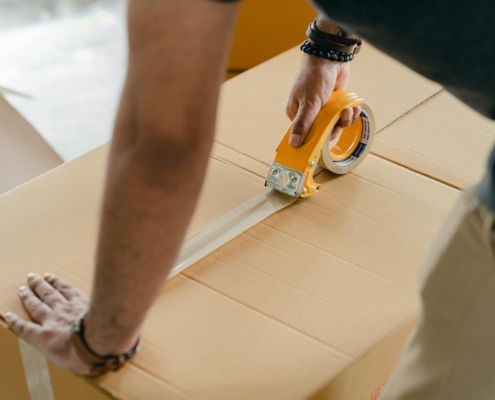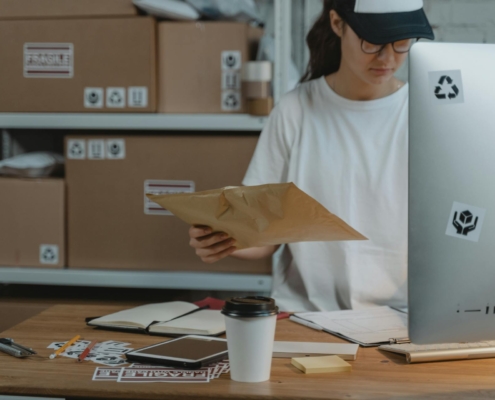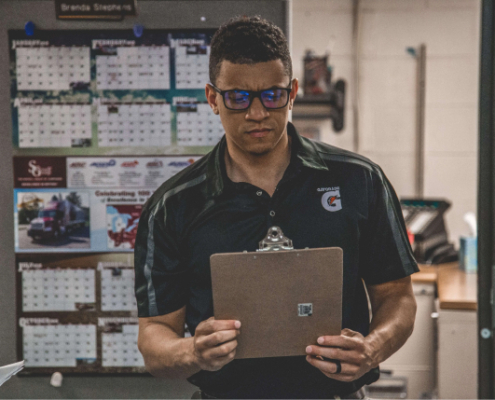Greener E-commerce: How to Run a More Eco-Friendly Online Store with Smart Logistics
Sustainability isn’t just a buzzword anymore—it’s a business necessity. With eco-awareness on the rise, today’s online shoppers are no longer satisfied with just fast shipping or low prices. They’re also looking at how their purchases impact the planet.
If you’re running an e-store, one of the most impactful ways to go green is through logistics. From packaging to warehousing, every part of your fulfillment process can contribute to a cleaner future—and a more profitable business.
So where should you begin?
The Eco Shift in E-Commerce: Why It Matters
Consumer values are evolving rapidly. Studies show that buyers—especially younger generations—are willing to vote with their wallets for environmentally responsible brands:
-
73% of global consumers say they’re open to changing shopping habits to reduce environmental harm (Nielsen).
-
86% of Europeans under 45 are happy to pay more for sustainable packaging (Global Buying Green Report, 2022).
-
In 2023, 55% of buyers purchased an eco-conscious product or service (Deloitte).
-
75% of Gen Z consumers prioritize sustainability over brand prestige.
The message is clear: if you’re not keeping up with eco-expectations, your brand may soon fall behind—or fall off entirely.
The Regulatory Push: Green Laws in Logistics
Going green isn’t just good business—it’s increasingly the law. Governments, especially in the EU, are enforcing stricter rules around packaging, emissions, and waste:
-
The European Green Deal is steering the EU toward net-zero emissions by 2050 and a 55% cut by 2030 (compared to 1990 levels).
-
Single-use plastics are on their way out, with EU regulations targeting full recyclability by 2030.
-
France’s anti-waste law prohibits destroying returned or unsold stock.
-
In Germany, VerpackG requires importers to cover the cost of packaging waste management.
Ignoring these mandates could mean costly fines—or worse, reputational damage and customer loss. Complying isn’t just about staying legal; it’s about staying competitive.
Why Fulfillment Strategy is Key to Going Green
Making your logistics eco-friendly is no small task. It involves material sourcing, process optimization, and continuous monitoring—all while trying to keep costs down and customers happy.
That’s why many e-commerce brands turn to fulfillment experts like Oripack. With years of experience and eco-logistics at our core, we help businesses transition smoothly to sustainable operations—without compromising performance or profit.
Eco in Action: How Oripack Brings Sustainability to Fulfillment
At Oripack, we integrate green practices into every layer of logistics. Here’s how we do it:
Smarter, Greener Warehouses
Sustainable logistics starts long before the package hits the road. It begins in the warehouse.
-
Optimized locations: Our facilities are positioned near courier hubs and major highways to shorten transport routes and reduce carbon emissions.
-
Waste handling: We sort and recycle packaging waste, using strict waste codes (15 01 01 for cardboard, 15 01 02 for plastic). Our operations are fully registered in the Waste Database for transparency and compliance.
-
Utility efficiency: With LED lighting, smart submeters, and water-saving devices, we keep our environmental footprint low.
-
Eco-certified spaces: Many of our warehouses are BREEAM-certified, meeting high standards for CO₂ emissions, air quality, and sustainable construction.
Sustainable Packaging That Delivers (Literally and Figuratively)
Packaging is one of the most visible—and impactful—areas where e-stores can make a difference.
We believe green packaging shouldn’t be an upsell or an afterthought. That’s why Oripack builds sustainability into our default packaging strategy:
-
Right-sizing: Our foldable cardboard system offers 24 box sizes from just six designs, letting us match product dimensions precisely and cut down on waste and fillers.
-
Eco-friendly materials: We use 100% recycled cardboard, FSC-certified paper instead of plastic, biodegradable fillers, and compostable shipping labels.
-
Reusable packaging: Especially in fashion, we offer packaging that can be reused for returns, thanks to dual adhesive strips.
-
Shipping consolidation: Instead of sending products from multiple warehouses in different boxes, we streamline the process to combine shipments, reducing emissions and improving the customer experience.
More Than Just Logistics: Oripack as Your Eco Partner
We don’t just provide services—we build sustainable systems that scale with your business. Our approach is tailored, hands-on, and built to help you succeed in a greener future.
Here’s How We Support Your Eco Journey:
1. We streamline your packaging strategy.
From box sizes to branding, we co-create packaging that’s not only green, but memorable—and fully aligned with your business goals.
2. We tailor solutions by industry.
Different sectors need different solutions. For fashion clients, we minimize dust exposure in our facilities to reduce product returns and waste. For others, we adapt accordingly.
3. We bring in the pros.
We work closely with environmental experts like Project Zero Waste to stay ahead of evolving regulations and best practices.
4. We give you options.
Sustainability doesn’t mean sacrificing style or flexibility. We present multiple packaging and process choices, all eco-conscious and customizable to your brand.
5. We track everything.
Our monitoring system watches resource usage like a hawk—because in large-scale logistics, small inefficiencies can turn into massive waste. We nip those problems in the bud.
With Oripack, you get a trusted partner ready to help you build a cleaner, smarter logistics chain that supports your business today—and future-proofs it for tomorrow.
Want to take the first step toward eco-optimized fulfillment?
Let’s make sustainability your competitive edge.










Leave a Reply
Want to join the discussion?Feel free to contribute!